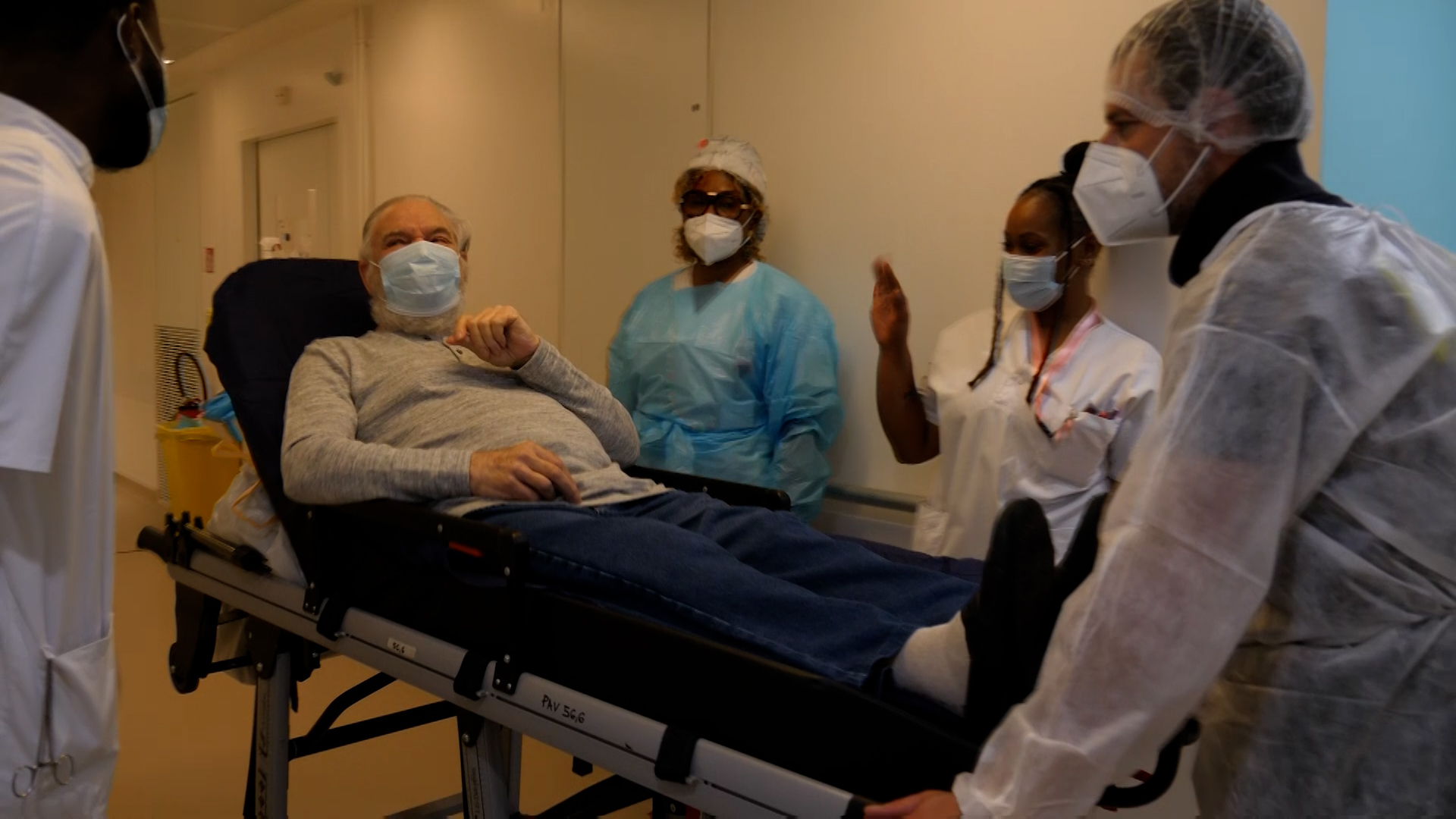02:06

In Gonesse Hospital, a 30-minute drive outside Paris, the pressures of the third wave of coronavirus cases are starting to recede.
CGTN Europe went inside the hospital in December last year, and have now returned five months on to see how the nursing staff on the special COVID-19 ward have fared.
For this hospital, the third wave of infections in the spring was more intense than the surge in October last year, but it did not last as long. As the numbers of cases and deaths continues to fall, patients who were admitted for COVID-19 treatment continue to recover.
But one longer-lasting effect is the mental impact on nursing staff. They have had to deal with a year and a half of this pandemic in France and three separate waves of infections.
READ MORE:
Putin-Biden summit: Key talking points
Turning firehoses into handbags
China and Russia's moon base plan
"I am a relatively new nurse and I was still in training when the pandemic began," says Sarah Fourchaud, a healthcare worker on the ward.
"It was pretty tough here, just as it was in every hospital. Psychologically there was a lot going on. We had to look after patients, their families and it was mentally tough to deal with the deaths as well."
To try to ease the pressure on hospitals, France closed the culture and hospitality sectors in October last year. The government then brought in a regional curfew, which was extended to apply nationwide, every night.
Those moves failed to curb the rising numbers of cases and so the president announced a 'lockdown lite' in March this year.
More than 110,000 people have lost their lives to the disease in France and the pandemic stretched hospitals to the limit. Some medical facilities were overwhelmed.
"We had new patients with serious problems, like the first wave," says Rachid Sehouane, the lead doctor on Gonesse Hospital’s COVID-19 ward.
"We had patients in wards like this having to move to intensive care frequently where there was a regular lack of beds. We had totally different age groups coming in, like the very young and also the elderly who for some reason had not been vaccinated yet."
In June last year, after the first wave, France eased out of its first national lockdown and opened the economy back up. The summer holidays went ahead as normal but the mass movement and mixing of people sparked a long second wave in the autumn.
This time around, the hope is that the millions of vaccine doses already administered will help to control any possible surge later this year.

